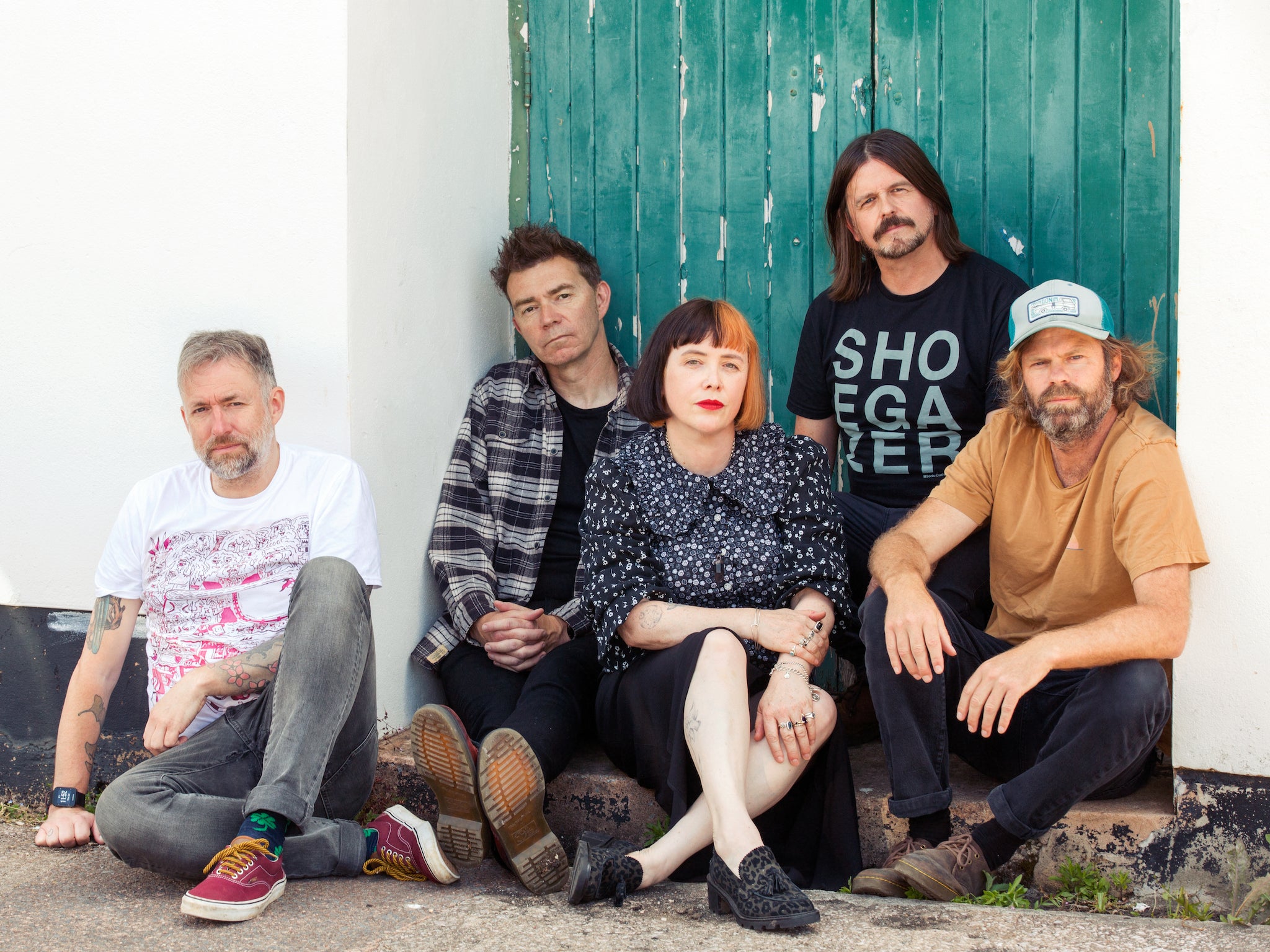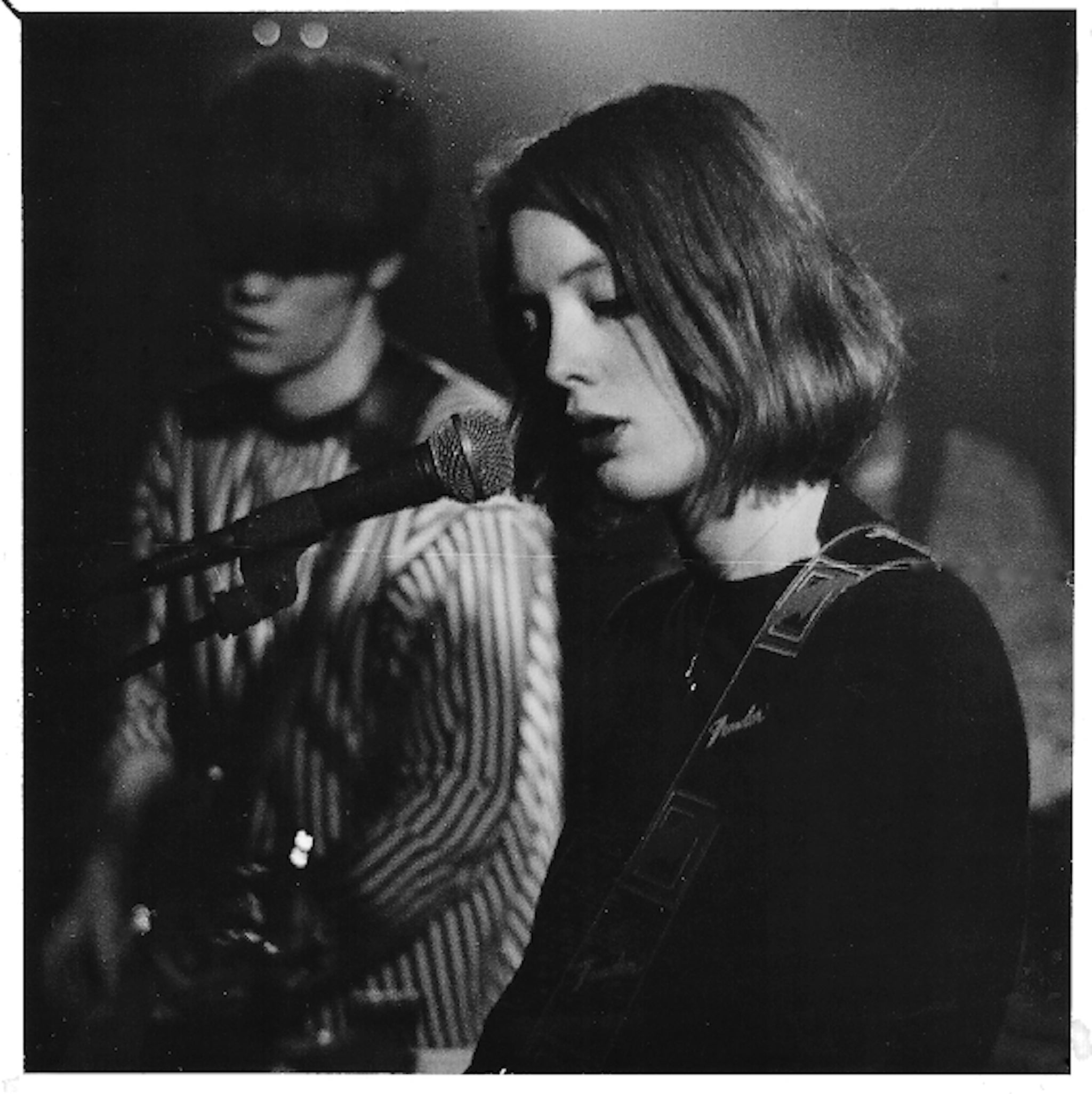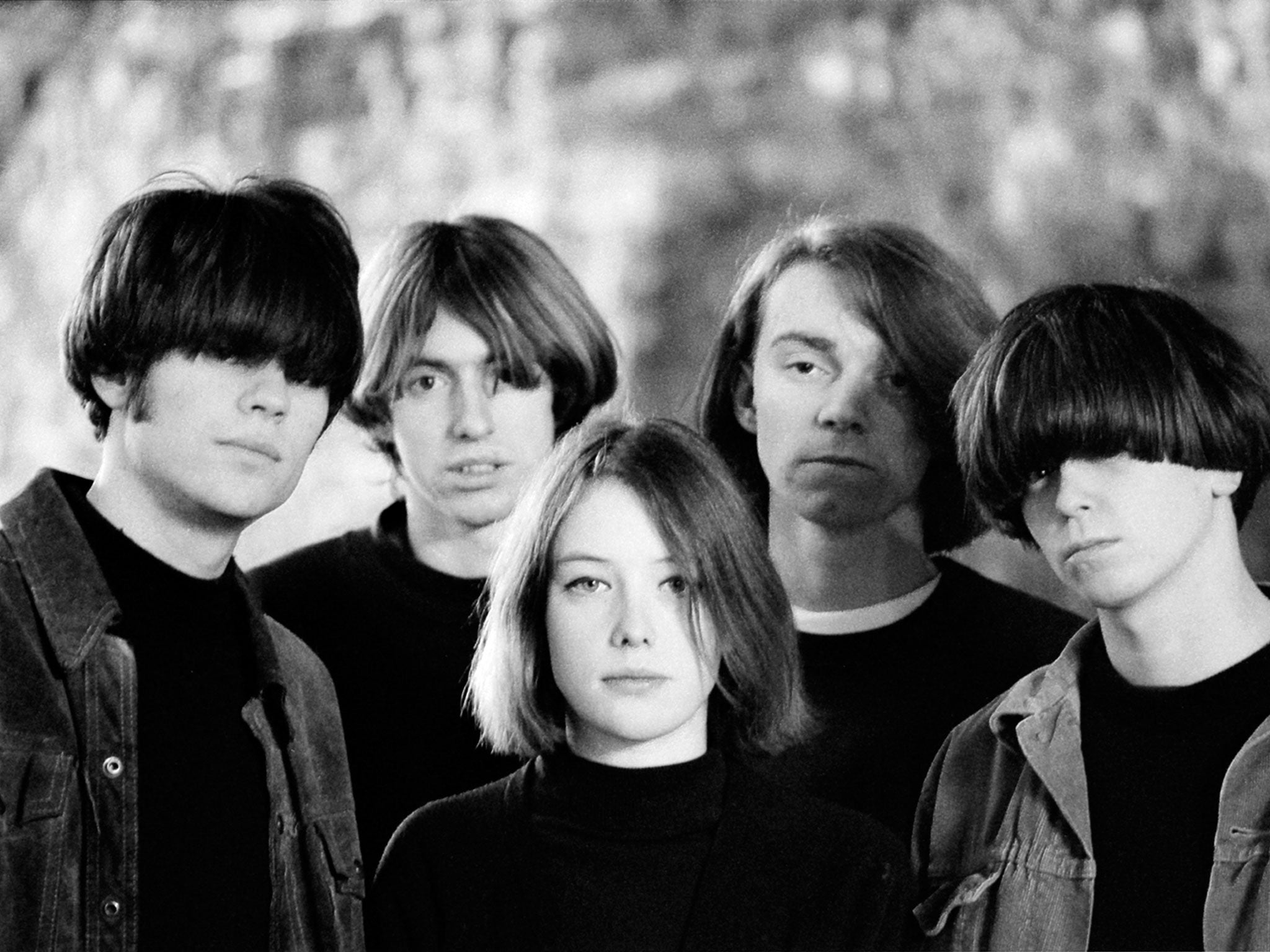Shoegaze pioneers Slowdive: ‘A journalist said we’d be stacking shelves in Tesco within six months’
Critical darlings one minute, vitriol magnets the next. Rachel Goswell of Slowdive speaks to Annabel Nugent about the backlash to shoegaze, their exceptional new album, and the health scare that almost ended her career in music


Your support helps us to tell the story
From reproductive rights to climate change to Big Tech, The Independent is on the ground when the story is developing. Whether it's investigating the financials of Elon Musk's pro-Trump PAC or producing our latest documentary, 'The A Word', which shines a light on the American women fighting for reproductive rights, we know how important it is to parse out the facts from the messaging.
At such a critical moment in US history, we need reporters on the ground. Your donation allows us to keep sending journalists to speak to both sides of the story.
The Independent is trusted by Americans across the entire political spectrum. And unlike many other quality news outlets, we choose not to lock Americans out of our reporting and analysis with paywalls. We believe quality journalism should be available to everyone, paid for by those who can afford it.
Your support makes all the difference.For a brief moment, Slowdive were the most hated band on the planet. Or at least in the UK. In 1991, Richey Edwards of Manic Street Preachers famously declared, “I will always hate Slowdive more than Hitler.” Critics weren’t much nicer. By the mid-Nineties, this five-piece from Reading had been driven out by the same mob who elevated them and others like them – such as Ride and My Bloody Valentine – only a couple years earlier. It was a fleeting but storied moment in music history. When vocalist and guitarist Rachel Goswell, now 52, pops up on Zoom, though, she is forward-looking. “We’ve been in existence longer now than we were the first time around,” she says, with a sunny presence that belies her love for the gothier side of things.
Next summer, it will be 10 years since Slowdive reformed in its original line-up: Goswell, Neil Halstead, Christian Savill, Simon Scott, and Nick Chaplin. She recalls leaving the stage in tears at their first reunion show, overwhelmed by a reception so warm it egged the band on to release new music. Arriving this week is everything is alive, the band’s second record post-reunion. The album is Slowdive as we have always known them: masters of shoegaze, an evanescent genre named for its player’s tendency to literally gaze at the warrens of effects pedals by their feet. On everything is alive, Slowdive show off their arsenal: reverb-heavy guitars and a rolling rhythm section. Genteel vocals feel their way blindly but effortlessly through a fog of tremolo they have navigated hundreds of times before. If Goswell likes to look ahead, her music remains a portal to the past.
Goswell is at an interesting juncture in life. “I’m going through the stage all women come to in their later years,” she says, an eyebrow cocked. Middle age suits her. The anxiety and panic attacks that plagued her twenties and thirties, up until her son was born in 2010, continue to shrink in her rear view. These days, she uses a hearing aid, the result of an ear infection in 2006 that led to permanent tinnitus and profound hearing loss in her left ear. But she laughs it off, chastising herself for not wearing it as much as she should.
“I basically had s***ty health throughout my adult life. Now I’m reasonably healthy and anxiety-free, just trying to enjoy my life.” Hip pain notwithstanding, she adds. Reflection comes with the territory, but it isn’t always a pleasant jaunt down memory lane. The opprobrium that showered down on Slowdive in the early Nineties is something Goswell has since made peace with, no thanks to people like me who routinely remind her of it. “Interviews bring up a lot of stuff that was s*** at the time,” she says with an expression that hints at a frown.
The band had always known the tide would turn. The working title of their 1991 EP Holding Our Breath was, in fact, Holding Our Breath Waiting for the Backlash. “We knew it would come because that’s how the press operated: build bands up and knock them down,” says Goswell. Reviewing Slowdive’s 2003 album Souvlaki, a critic for Melody Maker – the same publication that just two years previously had praised their music as “impossible, immaculate and serene” – said he would “rather drown choking in a bath full of porridge” than listen to them again. “By the time that album came out, there were very few people at our record label that cared about us,” she says.
Trends are fickle by nature, but the speed at which the press turned on shoegaze, dismissing the genre (and Slowdive with it) as middle-class whinging, was astounding. And the downfall Slowdive faced as a result is a testament to the last vestige of music critics with the power to make or break an act with a snarky remark. “It was different then,” says Goswell. She recalls meeting a journalist backstage at Reading Festival weeks before the release of their debut in 1991. “They said they were going to give the album a bad review, which is fine but then one of them turned to Christian and said, ‘You’ll be stacking shelves in Tescos within six months.’ It was quite aggressive, quite vicious. Why would you do that to a 19-year-old kid?” She pulls a face that is half-bewilderment and half-disgust. “Often my summation at the time was that a lot of these journalists were failed musicians and that they were jealous.”
A week before they had been scheduled to tour the US in 1993, Slowdive had their funding pulled. “Everything was out of our control back then, which is really frustrating, but we were young and very naive.” They decided to fund the tour on their own: driving themselves around the country and sleeping on floors. “It was like a f*** you to the record label,” says Goswell. “We were let down by people that fundamentally didn’t give a s*** about us.”
Amid the backlash to shoegaze and the arrival of Britpop, the record label asked them to make a pop record. Pygmalion, Slowdive’s third and final album before they split up, was the antithesis of that: a thrillingly experimental record that stepped into electronica. “We weren’t capable of making a pop record,” she insists. “Labels telling you what to do? F*** off. If you’re an artist, you have to do what you have to do. It’s not like Stock Aitken Waterman on demand is it? Or whatever the equivalent is these days. I’m really showing my age!”

A year in the industry was enough time for Goswell to know she wanted out. “I became very disenchanted very quickly.” Melody Maker and NME, magazines that had been her “Bible” as a goth teen growing up in Thames Valley, “completely lost their magic”. Obviously, she says, “because we were getting s*** reviews but also, I realised there were too many arseholes in the industry”. Her recollection of that time is “hazy” – partly, she adds, because of all the weed she smoked between the ages of 16 to 32 – but there is one memory that remains crystal clear decades on. “We had just played Kentish Town. I’m at our aftershow looking around and I hardly know anybody in the room. I’m just seeing these sycophants, people only talking to us because our band was hot for a minute and coming to the realisation that a lot of people we were meeting weren’t genuine. It was quite sad.”
Enjoy unlimited access to 100 million ad-free songs and podcasts with Amazon Music
Sign up now for a 4 month free trial (3 months for non-Prime members)
Enjoy unlimited access to 100 million ad-free songs and podcasts with Amazon Music
Sign up now for a 4 month free trial (3 months for non-Prime members)
More than once, Goswell believed her music career was done for. The Slowdive saga was one thing, but then came the ear infection in 2006. After the final death knell had rung for Slowdive, around the time their Coventry show was attended by one woman who was actually just mopping the floor, Goswell and Halstead formed another rock group with former bandmate Ian McCutcheon. As Mojave 3, they retained their original dreamy sound. Only this time, it was swirled into a frothy batch of alt-folk and sunshine-y Americana. After the release of their third record, though, Goswell contracted labyrinthitis.

“I woke up one day and the tinnitus was overwhelming. It was just after my grandfather had died weirdly,” she says, only now realising a possible connection between the two events. “It also meant I had vertigo. I couldn’t walk in a straight line for about four months.” She underwent physiotherapy for a year in order to retrain her balance organs. “I really thought it was the end of me doing music.” Then Goswell had her son in 2010. “Ironically, he was born profoundly deaf,” she notes. He was also born with CHARGE syndrome, a rare genetic disorder that required open-heart surgery at birth. It was only when her son was settled in nursery and her vertigo had sufficiently subsided that Goswell thought, “Well, yeah maybe we can do this. Maybe Slowdive isn’t done.”
I spiralled very badly with my grief and drank too much. I was just getting worse and crying every day and not coping with life
Nowadays, Goswell lives in the sort of small village she hated as a teenager. She also loves to garden. On camera, a whole forest of green erupts from behind her. It’s been 20 years since Goswell last smoked weed; three since she stopped drinking alcohol. “Coming up on four actually,” she says. Alcohol became a problem after her mother died in 2020. everything is alive is dedicated to her and Scott’s father, who also died that year. “I spiralled very badly with my grief and drank too much. It got to the point where six months after she passed, I wasn’t getting better; I was just getting worse and crying every day and not coping with life.” Then a switch in her mind flipped: “I thought, I need to stop and sort myself out. So I did.” She laughs. “It’s funny, the drinking culture in the UK… I don’t have a problem with me not drinking but other people find it quite difficult to comprehend.”
After all these years, you could hardly blame Goswell for harbouring a grudge or two – perhaps against those snarky critics or the money-hungry label executives. Maybe even the universe for bestowing her a potentially career-ending ear infection. “No,” she answers. “I don’t. I really don’t. I just simply don’t care. I’m in a really good place now and so is the band.” Besides, she smiles, “I don’t even know the names of those journalists who wrote those s***ty reviews.”
Slowdive release ‘everything is alive’ on 1 September via Dead Oceans



Join our commenting forum
Join thought-provoking conversations, follow other Independent readers and see their replies
Comments